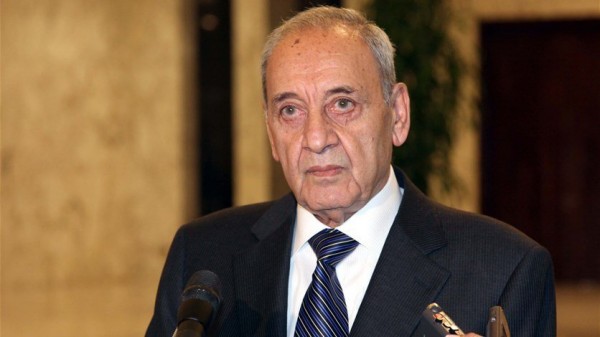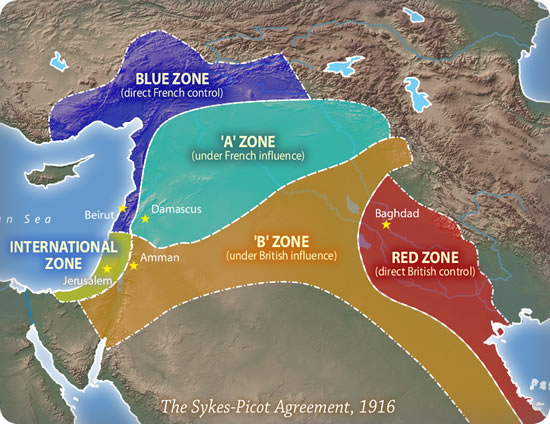 Speaker Nabih Berri warned on Wednesday that the region is witnessing major unpredictable developments
Speaker Nabih Berri warned on Wednesday that the region is witnessing major unpredictable developments
He was quoted by lawmakers who visited him at his Ain el-Tineh residence as saying : “There are signs that a new map of the region is being drawn up on the ruins of the Sykes-Picot agreement.”
“The challenges require the Lebanese people to adopt a responsible approach at the beginning of the new year in order to fortify constitutional institutions,” stressed Berri.
Earlier on Wednesday, media reports said that Berri had warned that the institutions are facing a “great danger” due to the obstruction of the work of parliament and cabinet.
His visitors quoted him as saying: “Those who believe that obstructing parliament and government will resolve the presidential deadlock have been proven wrong seeing as a head of state has not been elected.”
 The Sykes-Picot agreement was a secret agreement between Britain and France at the end of World War I and demise of the Ottoman Empire, which saw the division of the areas of what are now Lebanon, the Palestinian territories, Iraq, and Syria between the two European powers.
The Sykes-Picot agreement was a secret agreement between Britain and France at the end of World War I and demise of the Ottoman Empire, which saw the division of the areas of what are now Lebanon, the Palestinian territories, Iraq, and Syria between the two European powers.
The Sykes–Picot Agreement , officially known as the Asia Minor Agreement, was a secret agreement between the governments of the United Kingdom and France,with the approval of Russia. The agreement was concluded on 16 May 1916.
The agreement effectively divided the Arab provinces of the Ottoman Empire outside the Arabian peninsula into areas of future British and French control or influence. An “international administration” was proposed for Palestine. The terms were negotiated by the French diplomat François Georges-Picot and Briton Sir Mark Sykes. The Russian Tsarist government was a minor party to the Sykes–Picot agreement, and when, following the Russian Revolution of October 1917, the Bolsheviks exposed the agreement, “the British were embarrassed, the Arabs dismayed and the Turks delighted.
Britain was allocated control of areas roughly comprising the coastal strip between the sea and River Jordan, Jordan, southern Iraq, and a small area including the ports of Haifa and Acre, to allow access to the Mediterranean. France was allocated control of south-eastern Turkey, northern Iraq, Syria and Lebanon. Russia was to get Istanbul, the Turkish Straits and the Ottoman Armenian vilayets. The controlling powers were left free to decide on state boundaries within these areas. Further negotiation was expected to determine international administration pending consultations with Russia and other powers, including the Sharif of Mecca.

Leave a Reply
You must be logged in to post a comment.